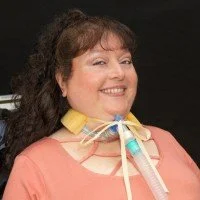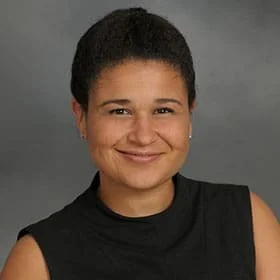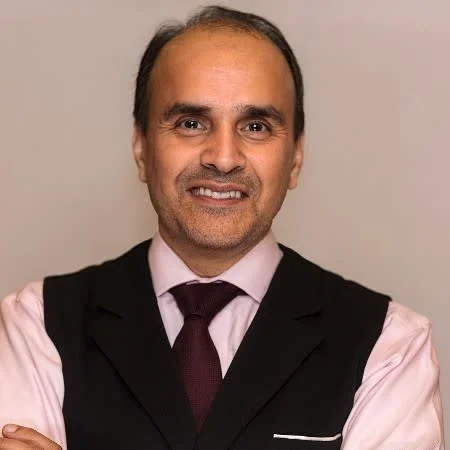Optimizing the Digital Experience for the Disabled and Neurodiverse
A Vision for Inclusive Innovation
The digital divide continues to result in inequitable healthcare and healthcare access — particularly for people with disabilities. Historically, people with disabilities have not been part of the conversation, let alone, involved in the development of healthcare technologies “from the ground up.” According to Dr. Brook Ellison, PhD, of Stony Brook University, it is estimated that 1 in 4 people either have short-term or long-term disabilities. People with disabilities often have complex medical and healthcare access needs that are not addressed.
Dr. Ellison, Valerie Mondelli of RevSpring, Kimberly Noel, MD MPH of 23andMe, and Jan Smith Reed of T-Base Communications, discuss how providing differently-enabled patients with bad technology effectively disables them, and how adaptive technologies can make a vast difference in access and quality of care.
Dr. Ellison shared, “when we think about inclusive innovation, we're not just talking about some kind of product that could help the lives of somebody who is disabled, we are talking about including somebody who has seen the world differently, who has lived with vastly different circumstances and has integrated all of these different characteristics to enable this person to live successfully.”
Serving the needs of the disabled/ differently-enabled also makes sound financial sense — it is estimated that one billion people, or 15% of the world's population, experience some form of disability. At any one point in one’s life, one will likely face some form of temporary disability.
Adaptive technologies in the past only addressed issues related to accessing healthcare - rarely taking into consideration patients' access to the financial and administrative part of the system. The group also discusses technologies that allow differently-enabled patients access to their financial records and information — solutions like accessible PDFs and HTML Text.
Serving the needs of a diversified group, requires a cultural and paradigm shift, one that, according to Dr. Noel, the younger generation understands inherently.
Listen to the panel discussion for further details…
Watch the panel:
The Panel:
Brooke Ellison, PhD
Stony Brook University
Dr. Ellison is an Associate Professor at Stony Brook University. Dr. Ellison received her undergraduate degree in cognitive neuroscience from Harvard University in 2000, followed by her Master Degree in Public Policy from the Harvard Kennedy School in 2004. After running for New York State Senate in 2006, Dr. Ellison completed her PhD in Sociology from Stony Brook University in 2012. A policy and ethics expert in stem cell research for over 15 years, Brooke has been committed to changing the perception of life-saving science. From 2007-2014, Brooke served on the Empire State Stem Cell Board, which designed New York State’s stem cell policy.
Valerie Mondelli
RevSpring
Valerie joined RevSpring as Executive Vice President – Healthcare Chief Commercial Officer in June of 2020. Valerie will be responsible for driving sales efforts and market strategy for RevSpring across all healthcare segments. Most recently Valerie was Chief Revenue Officer at Verisys. Prior to that she was Vice President of Sales and Marketing for RelayHealth, a division of McKesson and has held several sales leadership roles with NDCHealth, FiServ, Derivion and Eli Lilly. Valerie has served on a number of boards including the Boys and Girls Clubs of America, WVU’s Pharmacy School Advisory Board and Georgia State’s Young Business Leaders.
Kimberly Noel, MD, MPH
23andMe
As Medical Director of 23andMe, Dr. Noel leads the clinical services for virtual personalized medicine using the power of genetics to prevent disease. Dr. Noel is a board certified preventive medicine physician with specialization in health promotion and disease prevention. She is a subject matter expert in telehealth, having served on many national committees, including for organizations such as the Association of American Medical Colleges and the American Telemedicine Association. Prior to joining 23andMe she was the Deputy Chief Medical Information Officer and Telehealth Director at a large academic medical center in New York. Dr. Noel led Telehealth services, education and research initiatives for Stony Brook Medicine at a crucial period of digital transformation arising from needs of the Coronavirus pandemic response.
Jan Smith Reed
T-Base Communications
Jan is the Director, US Healthcare at T-Base Communications. She has dedicated her career to discovering and implementing solutions across the Healthcare enterprise. Combining her broad industry knowledge and experience, education, and social awareness she brings a holistic view of best practice to achieve business goals, advocate for the consumer experience and ensure compliance. Jan’s experience includes large payer operational excellence, provider credentialing and Network, medical management, and quality initiatives across all entities. Through an expert lens of experience and government healthcare requirements Jan leads strategy and growth initiatives.
Shahid Shah
Publisher and Chief Editor
Medigy.com
Shahid N. Shah is an internationally recognized and influential healthcare IT thought leader who is known as “The Healthcare IT Guy” across the Internet. He is a consultant to various federal agencies on IT matters and winner of Federal Computer Week’s coveted “Fed 100” award given to IT experts that have made a big impact in the government. Shahid has architected and built multiple clinical solutions over his almost 20-year career. He helped design and deploy the American Red Cross’s electronic health record solution across thousands of sites; he’s built two web-based EMRs now in use by hundreds of physicians; he’s designed large groupware and collaboration sites in use by thousands; and, as an ex-CTO for a billion dollar division of CardinalHealth he helped design advanced clinical interfaces for medical devices and hospitals.






